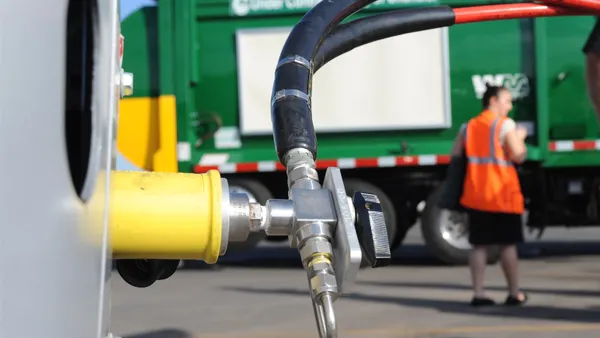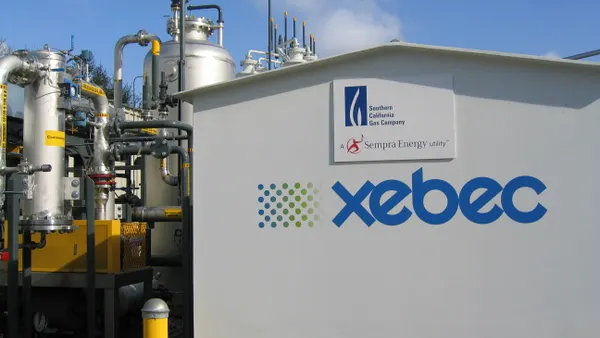Dive Brief:
- The State University of New York, Cobleskill (SUNY) announced it had received a $1.6 million grant from the Environmental Protection Agency (EPA) and the Department of Defense's Environmental Security Technology Certification Program (ESTCP) to further develop a portable waste-to-energy technology.
- The rotary gasifier has a daily capacity of two tons, developing 60 KW of energy. It is also only one of 37 new projects from ESTCP in 2018.
- This specific grant will support construction of a fully automated and portable rotary gasifier at a domestic military base. SUNY estimates the energy generated from the device will reduce liquid fuel use for energy generation by at least 50%.
Dive Insight:
New WTE projects are rare in the United States — with the newest one coming online more than a decade ago — though there are plans in some areas for redeveloping existing facilities.
Gasification has been described as a way to branch into new models beyond traditional combustion facilities, though the technology is still viewed as a higher risk option because it remains untested on a large scale in the U.S. Miniaturizing and mobilizing WTE offers the potential of an exciting development for the field.
Military bases — which have been shown in government audits to be using potentially dangerous methods for disposing of trash and solid waste — are a strong candidate for the process. The new method that captures how trash is burned, instead of letting trash piles burn into the open air, could reduce health risks while generating electricity. A reliable way to turn solid waste into energy would also, as predicted by SUNY, reduce reliance on liquid fuel, creating significant cost savings.
The technology could have other implications, such as being used as part of microgrids to decentralize power generation and increase resiliency. If the method ever becomes truly prolific, it could also alter the way communities and businesses handle their solid waste. Some may find it an attractive option to generate electricity from trash rather than pay to have it hauled away, though those decisions are likely a long way away.









